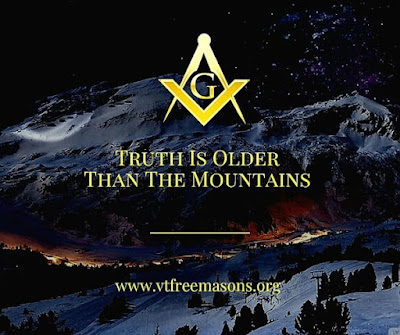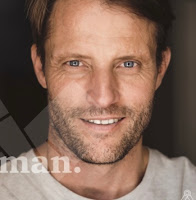The Knights of Columbus, the fraternal service order of the Roman Catholic Church, announced recent growth in membership that pushes its enrollment past 2.1 million worldwide, says its senior officer. If this is accurate, and if I’m not mistaken, they now are larger than all Masonic regular grand lodges combined, as the United States accounts for fewer than 900,000 Masons.
 |
| Patrick E. Kelly |
At their 142nd Supreme Convention, held in Quebec last Tuesday, Supreme Knight Patrick Kelly said 92,000 men joined during the past year, making it “one of our best years of growth in a century,” according to La Croix International, a Catholic news source based in France. “In these challenging times, our mission matters. We must start by building up a new generation of Catholic men—men formed in faith and virtue; men prepared to be missionary disciples.”
And that is where it becomes impossible to contrast their gross gain to Freemasonry’s net losses, because the Columbians rally around their church and doctrine, while Freemasons consistently remain confused or uninformed of who they fundamentally are. However, those two states of consciousness produce dissimilar messaging which we can juxtapose:
Freemasonry: 2B1ASK1
Columbians: “Knights come from every stage of life, in countless corners of the world. Join us as we celebrate real role models in a world that needs men who lead, serve, protect, and defend.”
Freemasonry: We make good men better.
Columbians: “No matter what stage you are in your life, we are all on a journey together. Join us as role models in a world that needs men who lead, serve, protect, and defend.”
Freemasonry: Not just a man. A Mason.
Columbians: “You are a key part in bringing a culture of faith to life in your home, council, community, or parish. Let the Knights help you.”
Freemasonry: Where men build meaning.
Columbians: “There is nothing more effective at evangelizing the culture, than regular, everyday people choosing to live their faith in their homes, councils, community, and parish.”
Obviously, Freemasons cannot speak to any particular religious faith, because we are not a religion or an adjunct of any religion, but it is the pride that shines through the Knights’ words that grabs me. They sound assertive, specific, unflinching. We speak timidly in empty phrases from marketing consultants who have no understanding of who we are, because they’ve been hired by leaders who don’t know either.
Furthermore, Freemasonry is tongue tied by a misunderstanding of our own prohibitions of discussing religion and politics. We are enjoined from arguing over sectarian differences and partisan politics, but we can talk ideas. I’ll avoid the word philosophy, because that frightens some of the brethren, but we, as Free and Accepted Masons, may exchange views, impart wisdom, and uphold truth.
We speak of virtue and morality. We too can speak to leadership and service, to protecting and defending.
 |
| Coming next week. |
The Lafayette bicentenary is upon us; the anniversary of his arrival in New York is days off. Freemasonry is commemorating this, but does anyone not named Chris Ruli know precisely what we’re celebrating?
The 250th anniversary of the Declaration of Independence is twenty-three months away. Are we preparing a jubilee for Americanism, a salute to the Freemasons, famous and obscure alike, who risked life and liberty to establish our country? Will we trumpet their ideas, or would doing so mean PoLiTics?
At the rate I’m going, I can’t say when I’ll finish it, but for months I’ve been drafting a speech that borrows from Masonic oratory of previous generations to portray how Masons once viewed their fraternity, and thereby maybe help today’s brethren find the confidence to talk about the tenets of our Craft. Unlike the Knights of Columbus, Freemasonry cannot speak of any particular sectarian beliefs, but we do speak of God, and we should voice our universal message for free minds and free societies. Masonry has no canonized saints, but we do have our civic heroes who exemplified these concepts, as expressed in various speeches a hundred years ago:
▪︎ Freemasonry is a college of manhood.
▪︎ Its lodges are moral republics and centers of law and order.
▪︎ We offer a sanctuary of friendship and a school for liberty.
▪︎ Masonry is a voluntary league for the promotion of freedom and virtue.
▪︎ We inculcate the principles of equality, the necessity of law, and the excellence of order in all things.
Sensible people who pay attention to life realize we are stumbling through frightening times. Historically, there always have been scary things happening, but today too many institutions we once trusted are corrupted and the social customs that guided us are perverted. We are eyewitnesses to reality being contorted and made nonsensical all day, every day.
 |
| ‘Rhetoric,’ per the Grand Lodge of New York. |
In his Daily Masonic Progress essay today on Substack, titled “Why Freemasons Must Study Rhetoric,” Bro. Darren Allatt writes:
Why does Freemasonry instruct us to study Rhetoric, one of the Seven Liberal Arts and Sciences? This ancient discipline, respected by great thinkers throughout history, holds the power to transform not only our communication but our very thought processes.
As Masons, we are called to improve ourselves in all aspects of life. But how does mastering Rhetoric contribute to this journey and what wisdom can we uncover from this timeless art?
In today’s fast-paced world, the art of effective communication is more crucial than ever. Yet many of us, Masons included, often overlook the importance of Rhetoric in our personal and professional lives. This oversight leads to missed opportunities for growth, influence, and understanding. Without a grasp of Rhetoric, we may find ourselves struggling to express our ideas clearly, persuade others, or fully understand the messages around us.
Decent men are looking for stability, order, real equality, virtue, morality, freedom, and manhood. For everybody’s sake, Freemasons ought to be as unapologetically bold and clear in speaking the truth as are our neighbors in the Knights of Columbus. The kind of man we seek will respond.






































































